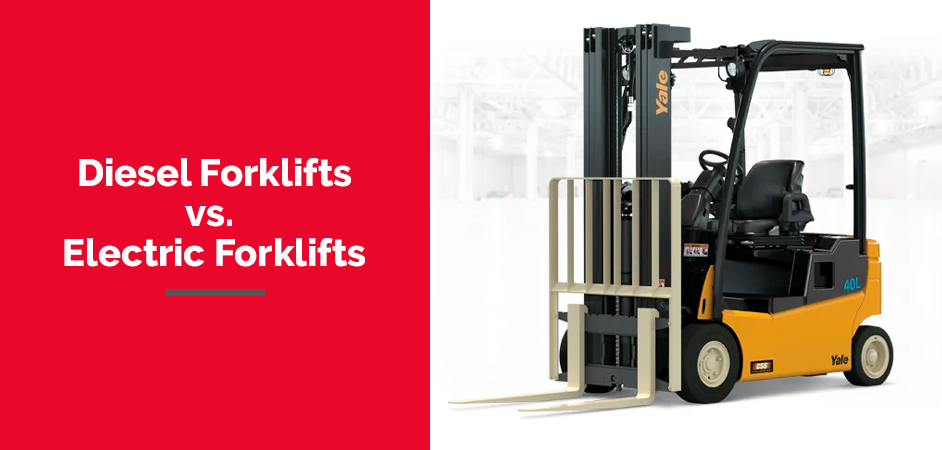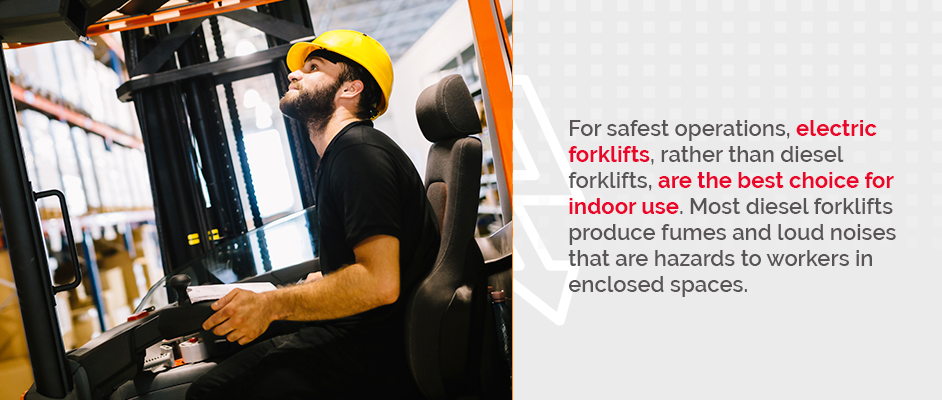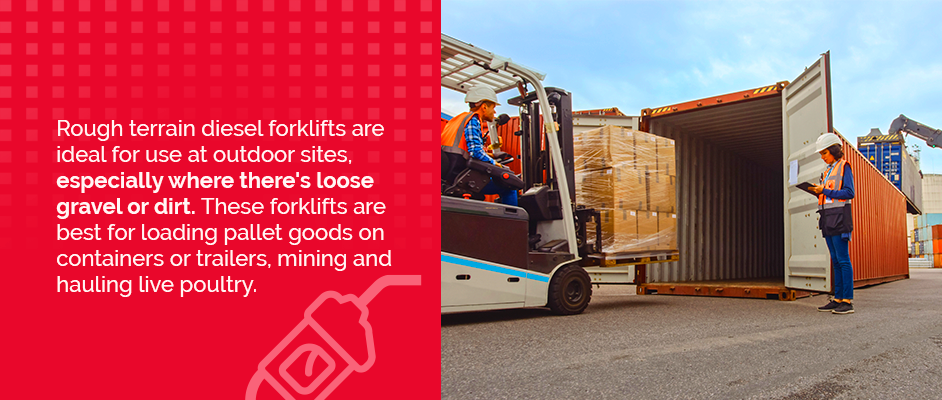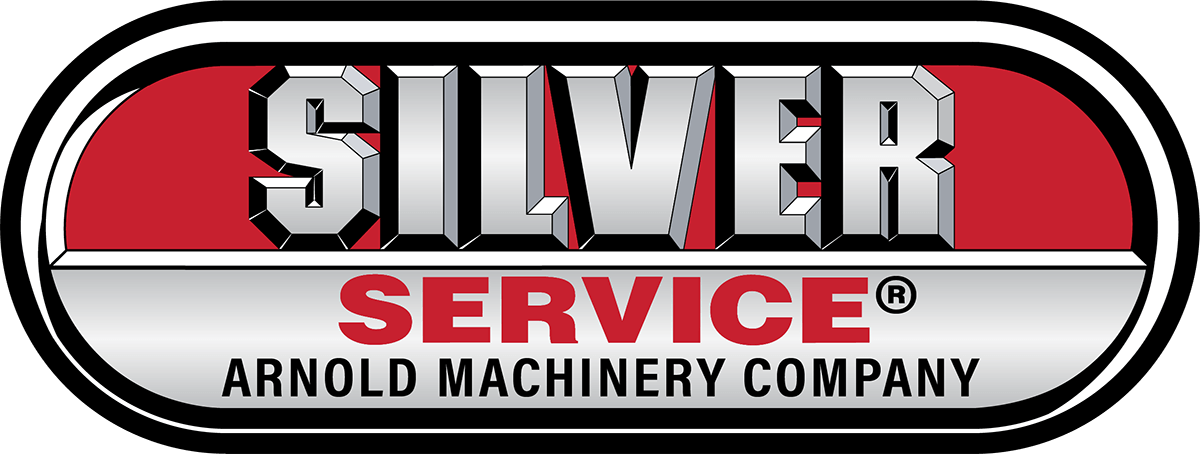Diesel Forklifts vs. Electric Forklifts
Blogs
Forklifts are useful and versatile tools for moving materials safely and efficiently. If you’re in the market for a new forklift, there are many options to consider. The first question you need to ask yourself is whether you’re looking for a diesel or electric forklift. Your choice will depend on where you’ll use the forklift and what you’ll need it for.
Electric Forklifts
Electric forklifts run on a battery rather than liquid fuels. You can find electric forklifts in places such as retail operations, grocery stores and manufacturing centers.
Benefits of Electric Forklifts
An electric forklift’s versatility of design allows for many applications in the warehouse and beyond. Its many benefits include:
- Minimal pollution: Since electric forklifts run on batteries instead of fuel, they emit no carbon monoxide. Their lack of emissions makes them healthier options for employees.
- Quiet operation: Loud operating sounds are also an employee health hazard that electric forklifts don’t produce.
- Longer battery life: The overall operating life of an electric forklift is up to 14,000 hours, or about 12 years, which is greater than the 10,000 hours, or about eight years, that diesel forklifts have.
- Easy maintenance: Electric forklifts are relatively easy to take care of, just requiring trained people to oversee battery changes when needed.
- Stability: The heavy lead-acid battery acts as a counterbalance to the weights these forklifts pick up, which adds to the overall stability of electric forklifts.
Disadvantages of Electric Forklifts
Although electric forklifts are often a reliable choice, there are a few potential drawbacks to keep in mind:
- Battery drainage: Heavier loads drain the battery quicker, making electric forklifts lose power faster than diesel ones in heavy lifting circumstances.
- Slower acceleration: Electric forklifts accelerate at slower speeds than diesel forklifts. However, companies have also reported that this slower operating speed increases safety and tire longevity, with tires lasting two to three times longer on electric forklifts than diesel ones.
- Health hazards: There are risks and health hazards associated with lead-acid batteries, including hydrogen gas, sulfuric acid splashes and shock.
- Low lift capacities: Electric forklifts have an average lift capacity of 3,000-6,000 pounds, as opposed to diesel forklifts, which can lift up to 40,000 pounds.
Diesel Forklifts
Diesel forklifts, also called internal combustion forklifts, run on diesel fuel. Their sturdy designs allow for power and versatility in many industries, from construction and agriculture to recycling and garden supply transportation.
Benefits of Diesel Forklifts
Diesel forklifts are often the right tool for the job. Their advantages include:
- Size: Diesel forklifts are larger than electric forklifts, making them suitable for outdoor tasks.
- Load capacity: Because of their size, diesel forklifts can move bigger, heavier loads than electric forklifts, and they can also accelerate faster, making them more ideal for bigger jobs.
- Stability: Since diesel forklifts are designed to operate on rough and uneven terrains, they are much more stable than electric lifts.
- Higher torque: Because of their large engines, diesel lifts have higher power capacities than other types of forklifts, so they’re ideal for towing and moving on gradient surfaces.
Disadvantages of Diesel Forklifts
Like any type of machine, diesel forklifts come with some possible drawbacks to consider, including:
- Maintenance: Diesel forklifts need regular maintenance to check for issues such as fuel leaks that can cause carbon monoxide poisoning.
- Health hazards: Because of their emissions, diesel forklifts can be dangerous to use in non-ventilated areas, which also makes them non-ideal to use in many enclosed settings.
- Longevity: Diesel forklifts generally need to be replaced every eight years, whereas electric lifts can often run for 12 years.
What Type of Forklift Is Best for Indoor Use?
For safest operations, electric forklifts, rather than diesel forklifts, are the best choice for indoor use. Most diesel forklifts produce fumes and loud noises that are hazards to workers in enclosed spaces. Since electric forklifts don’t produce carbon monoxide and run quietly, you can safely use them indoors.
Electric forklifts are also best to use indoors because they’re smaller and more compact than most diesel models. The narrow designs and tight turning radius of many electric forklifts allow for easier movement in small spaces, such as warehouses where aisles are close together or many people are around. These features of electric lifts allow for efficiency and convenience and also help to prevent crashes and injuries.
Common types of electric forklifts and their indoor applications include:
- Three-wheel forklifts can maneuver in tight spaces, have a tight turning radius and are good for loading, unloading and moving loads to storage.
- Four-wheel forklifts are compact, with more stability when turning.
- Articulated forklifts can lift large loads high into the air with a joint on the fork carriage that moves the load where it needs to go.
- Side loaders are designed for long loads that take up the length of the truck. Allow for narrower aisles in warehouses so you can fit more inventory.
- Order pickers help you collect items in an order from the warehouse inventory or put those items back into the inventory.
- Multi-directional forklifts smoothly change direction and speed. They can safely carry long and bulky loads sideways and move in all directions.
- Narrow-aisle forklifts can easily fit in tight spaces and are ideal for inventory shuffling.
What Kind of Forklift Is Best for Outdoor Use?
For use outdoors, diesel forklifts are the best options. Open-air settings are safer for releasing emissions. In addition, the size and power capacities of diesel forklifts work best for situations such as construction sites, farmland, shipping yards, junkyards or any other places with uneven terrain.
Rough terrain diesel forklifts are ideal for use at outdoor sites, especially where there’s loose gravel or dirt. These forklifts are best for loading pallet goods on containers or trailers, mining and hauling live poultry. Rough terrain forklifts have pneumatic tires, which are inflatable with thick treads, to allow for all-wheel traction and safe maneuverability.
While most diesel forklifts are designed for outdoor use, you can use some models indoors, provided you have adequate ventilation and are using a vehicle with a designation for legal indoor operation. Before using any diesel forklift in an enclosed space such as a truck or warehouse, make sure you’re in a place where it’s safe to do so.
Contact Arnold Machinery to Choose the Right Forklift for Your Business
Whatever your business specializes in, there’s a forklift out there to help you do your job safely and efficiently. Whether you need to stack indoor inventory or transport outdoor construction materials, Arnold Machinery carries a wide selection of new and used forklifts.
Here at Arnold Machinery, we’re dedicated to complete customer trust. The needs of your business are our priority, which is why we’re proud to work under our Silver Service® guarantee — INTEGRITY returned in customer satisfaction. To get started on your forklift search, contact us today!




